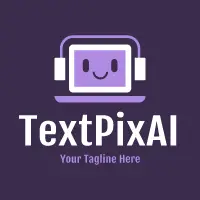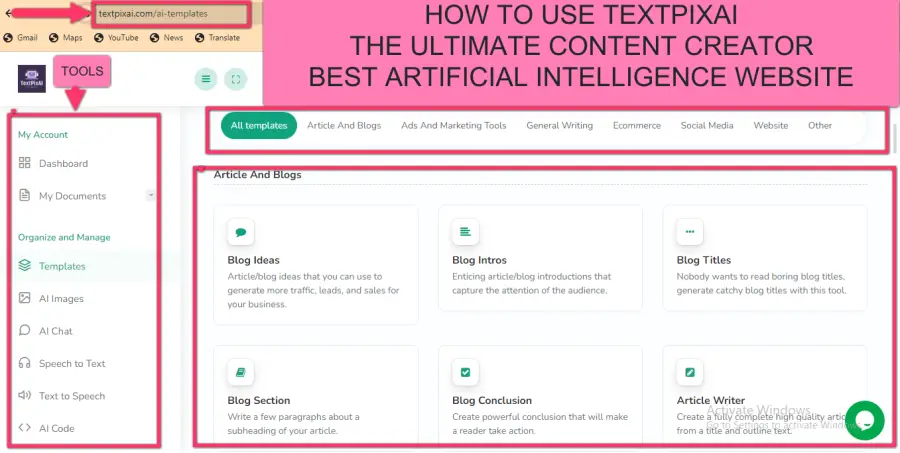AI and Human Rights
Introduction
In a rapidly evolving technological landscape, the rise of Artificial Intelligence (AI) has reshaped industries, economies, and societies. While AI promises remarkable advancements and efficiencies, it also raises critical concerns about its impact on human rights. This comprehensive article explores the intricate relationship between AI and human rights, delving into the challenges, ethical considerations, and potential solutions.
You may also like to read:
Data Privacy and AI: Balancing Innovation and Protection
The Intersection of AI and Human Rights
Artificial Intelligence, often described as the simulation of human intelligence by machines, encompasses a broad range of technologies and applications. These include machine learning, natural language processing, computer vision, and robotics, among others. AI has permeated our daily lives, from virtual assistants on our smartphones to recommendation algorithms on streaming platforms.
Simultaneously, human rights represent a fundamental aspect of our global society. They encompass a set of universal rights and principles that safeguard individual dignity, freedom, equality, and justice. The Universal Declaration of Human Rights, adopted by the United Nations in 1948, serves as a cornerstone for human rights protection.
The Significance of the Topic
The convergence of AI and human rights is a topic of immense significance. As AI technologies become increasingly integrated into our societies, they have the potential to both empower and infringe upon our fundamental rights. Understanding this complex landscape is essential for individuals, policymakers, and technologists alike.
Purpose of the Article
This article aims to provide a comprehensive exploration of the impact of AI on human rights. It delves into the challenges posed by AI, such as surveillance and bias, while also highlighting ethical considerations, regulatory efforts, and the potential positive contributions of AI to human rights. By the end of this article, readers will gain a deeper understanding of the intricate relationship between AI and human rights and the importance of responsible AI development.
Understanding AI and Its Rapid Advancements
Defining Artificial Intelligence
Artificial Intelligence refers to the capability of machines to perform tasks that typically require human intelligence. These tasks include problem-solving, learning from experience, understanding natural language, and recognizing patterns. AI technologies encompass various subfields, such as machine learning, deep learning, and reinforcement learning.
The Evolution of AI
The history of AI dates back to the mid-20th century when researchers first began exploring the concept of machine intelligence. Over the decades, AI has undergone significant advancements, driven by innovations in computing power and the availability of vast datasets. Recent breakthroughs, such as the development of deep neural networks, have propelled AI into the mainstream.
The Critical Role of Human Rights
Defining Human Rights
Human rights are inherent to all individuals, regardless of their nationality, race, religion, or any other status. They include civil and political rights, such as the right to life, liberty, and a fair trial, as well as economic, social, and cultural rights, such as the right to education, work, and an adequate standard of living. The Universal Declaration of Human Rights, adopted in 1948, serves as a foundational document outlining these rights.
The Importance of Human Rights
Human rights are central to the concept of human dignity and individual freedoms. They serve as a moral and legal framework to protect individuals from discrimination, violence, and oppression. Upholding human rights is a fundamental responsibility of governments and societies worldwide.
AI and Its Impact on Human Rights
Surveillance and Privacy
One of the most prominent concerns regarding AI and human rights revolves around surveillance and privacy. AI-driven surveillance technologies, often employed by governments and corporations, have the potential to infringe upon individuals' right to privacy. These technologies include facial recognition systems, biometric data collection, and predictive policing algorithms.
AI-powered surveillance systems raise questions about consent, data collection, and the use of personal information. In cases where surveillance is deployed without adequate safeguards, it can lead to mass violations of privacy rights.
Bias and Discrimination
Algorithmic bias represents another significant challenge in the AI-human rights intersection. Machine learning algorithms, when trained on biased or incomplete data, can perpetuate and even exacerbate existing inequalities. For example, biased facial recognition algorithms may disproportionately misidentify individuals from certain racial or gender groups, leading to discrimination.
Addressing algorithmic bias is not only a technical challenge but also an ethical imperative. It requires transparency in AI development, diverse and representative datasets, and ongoing monitoring to detect and mitigate bias.
Automation and Employment
The impact of AI on employment also has implications for human rights, particularly economic and labor rights. As AI technologies automate various tasks, there are concerns about job displacement and economic inequality. Individuals who lose their jobs due to automation may face challenges in securing alternative employment and maintaining their standard of living.
Ensuring that the benefits of AI-driven automation are distributed equitably is essential for safeguarding economic and labor rights. Policies that promote reskilling, lifelong learning, and social safety nets are critical in this context.
Case Studies: AI and Human Rights Violations
To better understand the real-world implications of AI on human rights, we can examine specific case studies that highlight the challenges and ethical dilemmas.
Surveillance States: China's Social Credit System
China's Social Credit System is a prime example of AI-powered surveillance on a massive scale. The system assigns scores to individuals based on their behavior, including financial transactions, social interactions, and even online posts. Citizens with low scores may face restrictions on travel, employment, and access to social services.
The Social Credit System raises concerns about mass surveillance, lack of privacy, and the potential for social control through technology. It underscores the need for robust safeguards to protect individuals' rights in the face of pervasive surveillance.
Predictive Policing and Bias
Predictive policing, which relies on AI algorithms to anticipate and prevent crimes, has gained popularity in law enforcement. However, concerns have emerged regarding the potential for bias in predictive policing algorithms. These algorithms may disproportionately target certain communities or demographics, leading to discriminatory outcomes.
The ethical dilemma lies in balancing the goal of reducing crime with the protection of civil rights and liberties. Policymakers and law enforcement agencies must work to ensure that predictive policing is both effective and fair.
Social Media and Disinformation
AI plays a significant role in the dissemination of information on social media platforms. While AI algorithms are used to curate content and make recommendations, they also have the potential to amplify disinformation and fake news. The spread of false or misleading information can undermine freedom of expression and influence public opinion.
Addressing this challenge requires a multifaceted approach, involving platform accountability, media literacy, and algorithmic transparency. Protecting the right to accurate information is essential in the digital age.
AI Ethics and Human Rights
Ethical Frameworks in AI
To mitigate the negative impact of AI on human rights, ethical frameworks and principles have emerged. These principles include fairness, transparency, accountability, and explainability. Ethical AI development involves ensuring that algorithms are designed and deployed in ways that align with human rights principles.
Regulatory Efforts
Governments and international organizations have recognized the need for AI regulation to protect human rights. Initiatives such as the General Data Protection Regulation (GDPR) in Europe and discussions surrounding AI ethics guidelines have set the stage for responsible AI development. Policymakers are working to strike a balance between fostering innovation and safeguarding human rights.
Challenges and Ethical Dilemmas
The "Black Box" Problem
AI algorithms are often described as "black boxes" because their decision-making processes can be opaque and difficult to interpret. This lack of transparency raises questions about individuals' right to an explanation when AI systems make decisions that affect them. Striking a balance between algorithmic complexity and transparency is a challenge for AI developers and regulators.
Accountability Gaps
Determining accountability in cases of AI-driven harm is another complex issue. When an AI system makes a biased or discriminatory decision, it can be challenging to assign responsibility. Legal and ethical frameworks must evolve to address these accountability gaps and provide recourse for those affected by AI-related violations.
Balancing Security and Privacy
The tension between national security and individual privacy is a perennial challenge. Governments often argue that AI-powered surveillance and data collection are necessary for security purposes. However, these measures can encroach upon individuals' privacy rights. Finding a balance between security imperatives and privacy protections remains an ongoing ethical and policy dilemma.
AI for Good: Positive Contributions to Human Rights
While AI presents challenges, it also offers opportunities to advance human rights.
Humanitarian Efforts
AI technologies are increasingly used in humanitarian efforts, including disaster response and relief operations. AI-powered tools can analyze satellite imagery, process natural language, and predict the spread of diseases. These applications enhance the ability to provide aid and protect human rights in crisis situations.
Healthcare Advancements
AI has the potential to revolutionize healthcare, promoting the right to health. Machine learning algorithms can assist in early disease detection, drug discovery, and personalized medicine. Access to AI-driven healthcare solutions can improve healthcare access and outcomes, particularly in underserved communities.
The Future of AI and Human Rights
Emerging Technologies
As AI continues to evolve, emerging technologies such as quantum computing and AI-enhanced brain-computer interfaces raise new ethical considerations. These technologies have the potential to both empower and challenge human rights in unprecedented ways. Policymakers and technologists must stay ahead of these developments to ensure responsible AI use.
The Role of Stakeholders
Safeguarding human rights in the age of AI requires collective effort. Governments, tech companies, civil society organizations, and individuals all have roles to play. Collaboration, dialogue, and ongoing scrutiny of AI applications are essential to strike the right balance between innovation and human rights protection.
Conclusion
The Inseparable Connection: AI and Human Rights
The intersection of AI and human rights is not a distant or abstract concern—it is a reality that shapes our daily lives. As AI technologies continue to advance, so too do the challenges and ethical dilemmas they pose. Balancing innovation with the protection of human rights is an ongoing endeavor that demands vigilance, transparency, and responsible development.
The Need for Ethical AI Development
Ethical AI development is not an option but a necessity. It requires adherence to principles such as fairness, transparency, and accountability. It demands regulatory efforts that prioritize human rights and empower individuals to understand and challenge AI-driven decisions.
A Call to Action: Balancing Innovation and Human Rights Protection
In this dynamic landscape, it is incumbent upon all stakeholders to take action. Governments must enact responsible AI regulation, tech companies must prioritize ethics, and individuals must advocate for their rights. The future of AI and human rights is a collective endeavor—one that will shape the course of our societies for generations to come.
References
For further exploration of AI and its impact on human rights, consider these references and external links:







